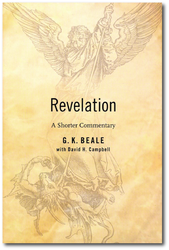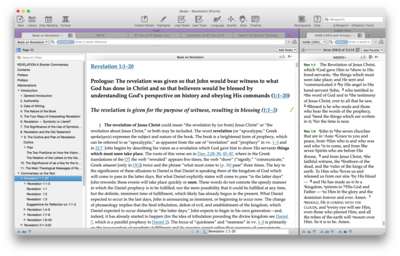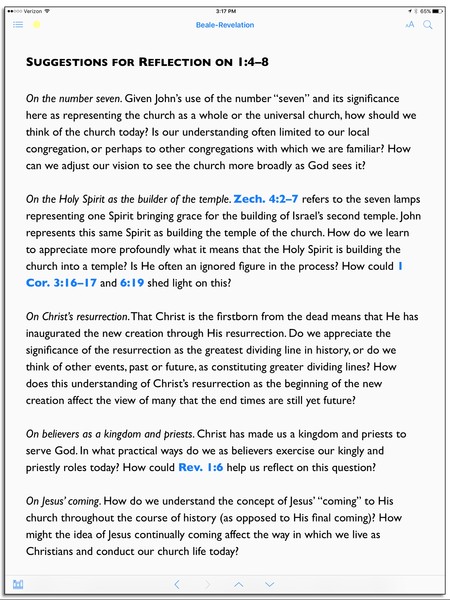
Almost two decades ago, one of the better commentaries on Revelation was released: Gregory K. Beale’s volume in the New International Greek Testament Commentary. Beale, Professor of New Testament and Biblical Theology at Westminster Theological Seminary, produced a commentary that has been extremely influential for contemporary discussions about Revelation ever since. And yet, his commentary is not easily read by some because it assumes a background in New Testament Greek to fully utilize it. The continued request for a more accessible version of his commentary led Beale (with the aid of David Campbell) to write Revelation: A Shorter Commentary, which we are releasing this week for the Accordance Digital Library.
Technically, Beale’s Shorter Commentary on Revelation is based on the Greek text, but he does not really quote from the Greek as he does in the NIGTC. In fact, Beale primarily uses the New American Standard Bible for biblical quotations throughout his commentary. Beale writes in the preface that he wanted to create “a shorter commentary on Revelation that would be accessible for pastors, students, and Christians in general.” The running outline of Revelation used in the commentary is designed to be exegetical in nature, and preachers can easily run with it in their sermons as is or modified for their expository needs. Throughout the commentary, Beale offers “Suggestions for Reflections” on a particular passage with both interpretive thoughts as well as challenging questions that could be used for group or personal study through the book.
Click/tap the image above for a larger view of Beale’s Revelation: A Shorter Commentary
In the introductory section, Beale outlines four primary means of interpreting Revelation that have followed over the centuries: Preterist, Historicist, Futurist, and Idealist—or as he calls it, The Redemptive-Historical Idealist View. This latter perspective is the one followed by Beale but he nuances the view to the point that he refers to his interpretation as eclectic taking the points of truth from the other perspectives and incorporating them into his understanding. Beale sees the key for his interpretation as coming from v. 1: “…He sent and communicated it by His angel to His bond-servant John” (NASB), specifically in regard to the word underlying communicated — sēmainō — which he sees as having the meaning “to signify.” Thus, Beale sees Revelation primarily as “a symbolic presentation of the battle between good and evil.”
Click/tap the image above for a larger look at reflection questions in Beale’s Revelation commentary.
Regardless of one’s view of Revelation, Beale’s Shorter Commentary is a valuable read. He certainly finds value in other methods of interpretation and draws their strongest points into his own where he is able. Study the commentary by itself or in conjunction with the longer work in the NIGTC series.



